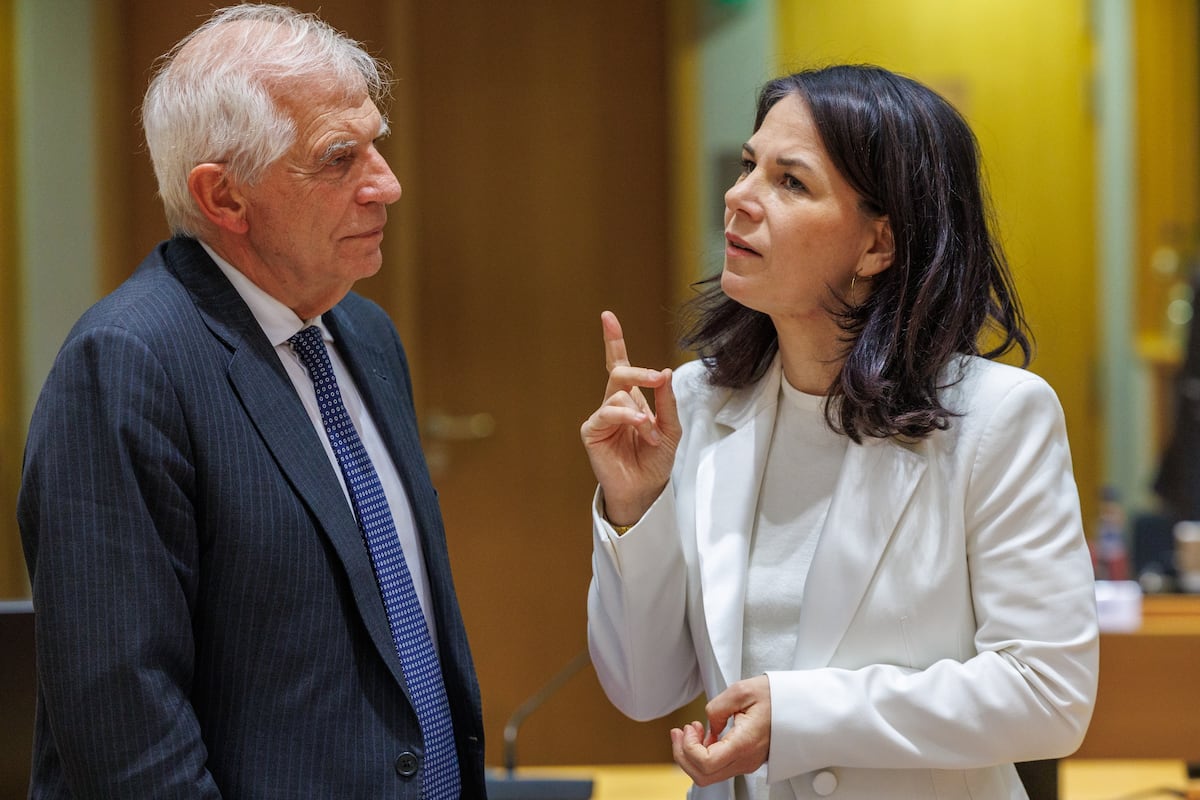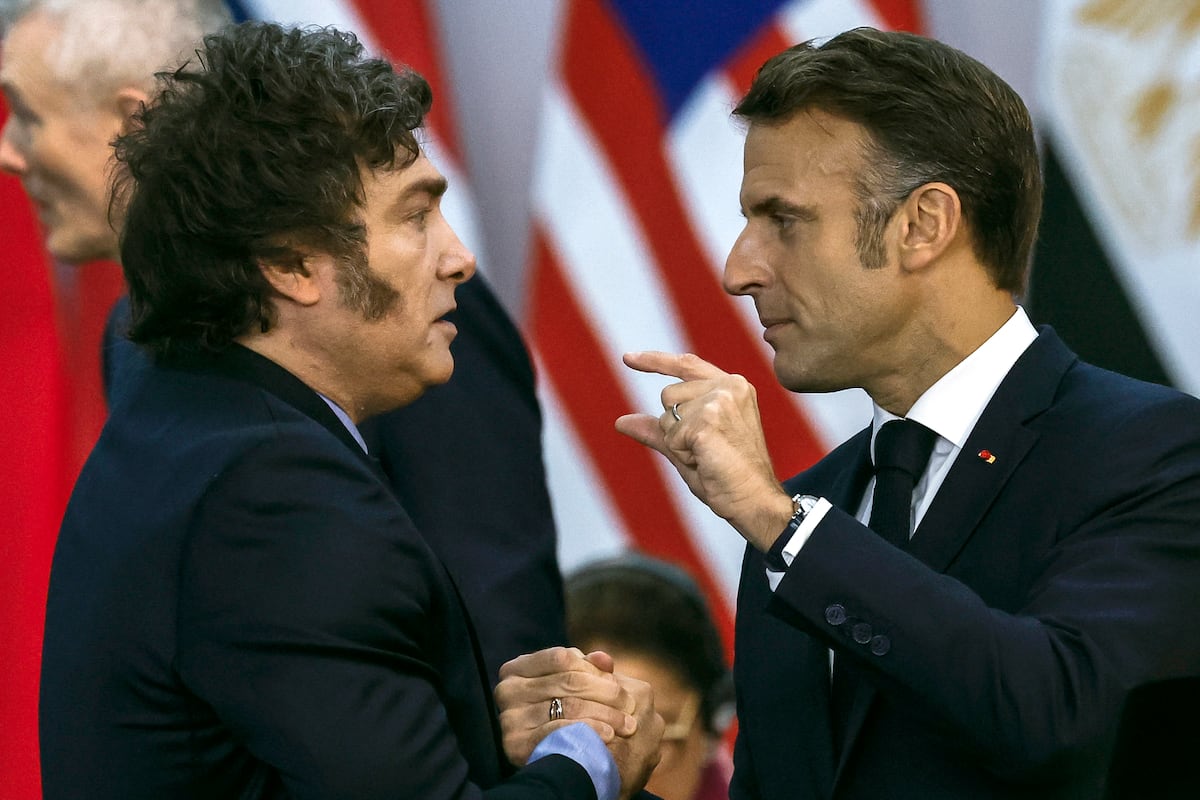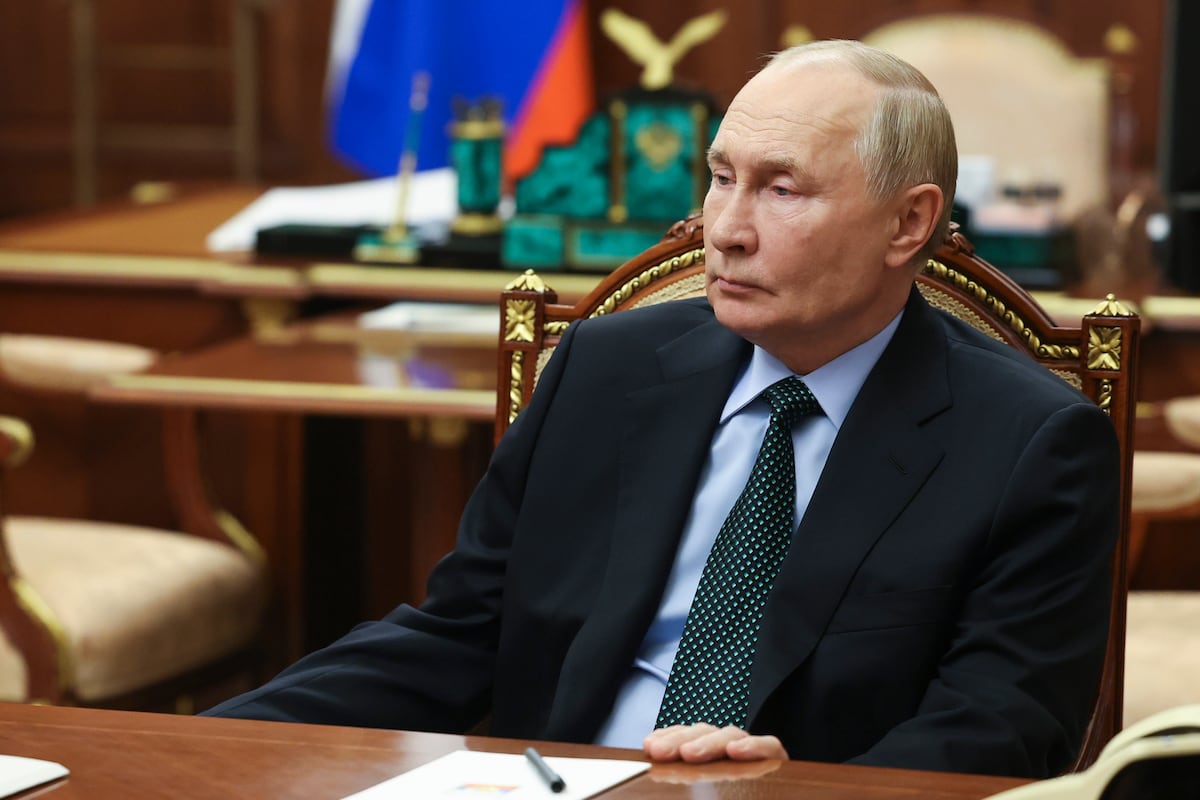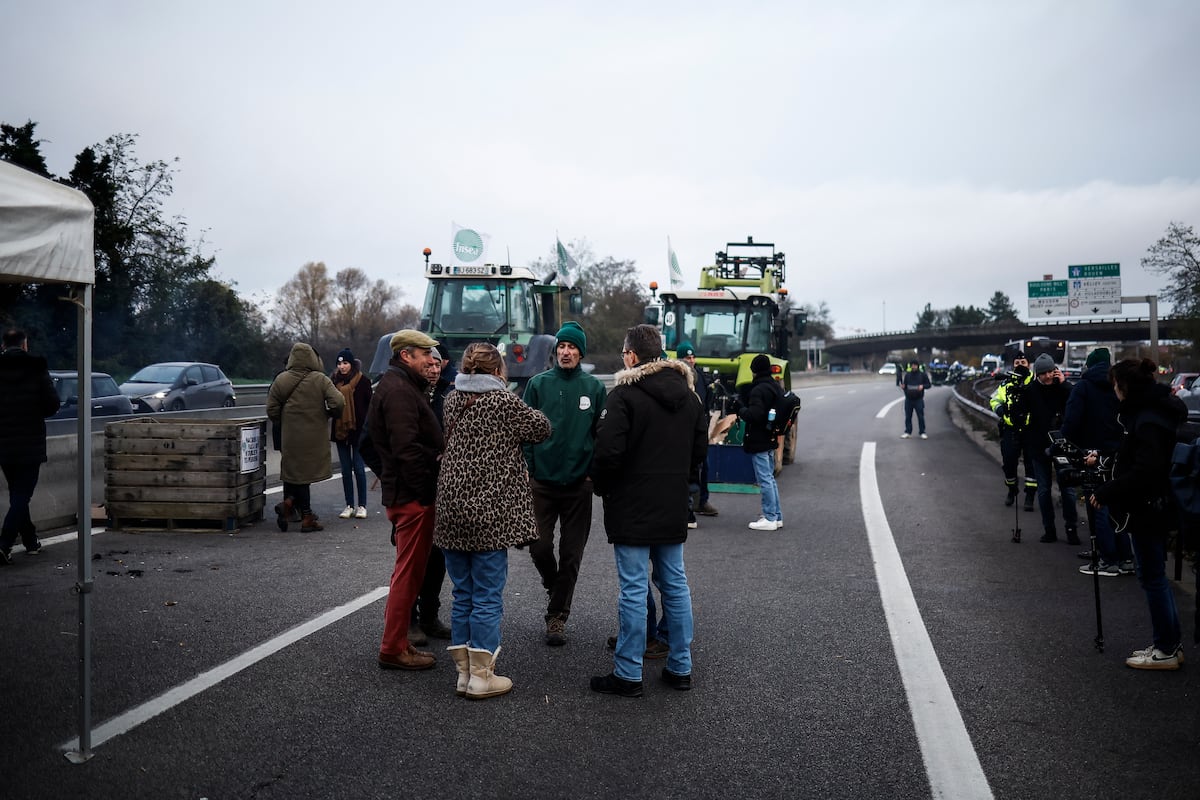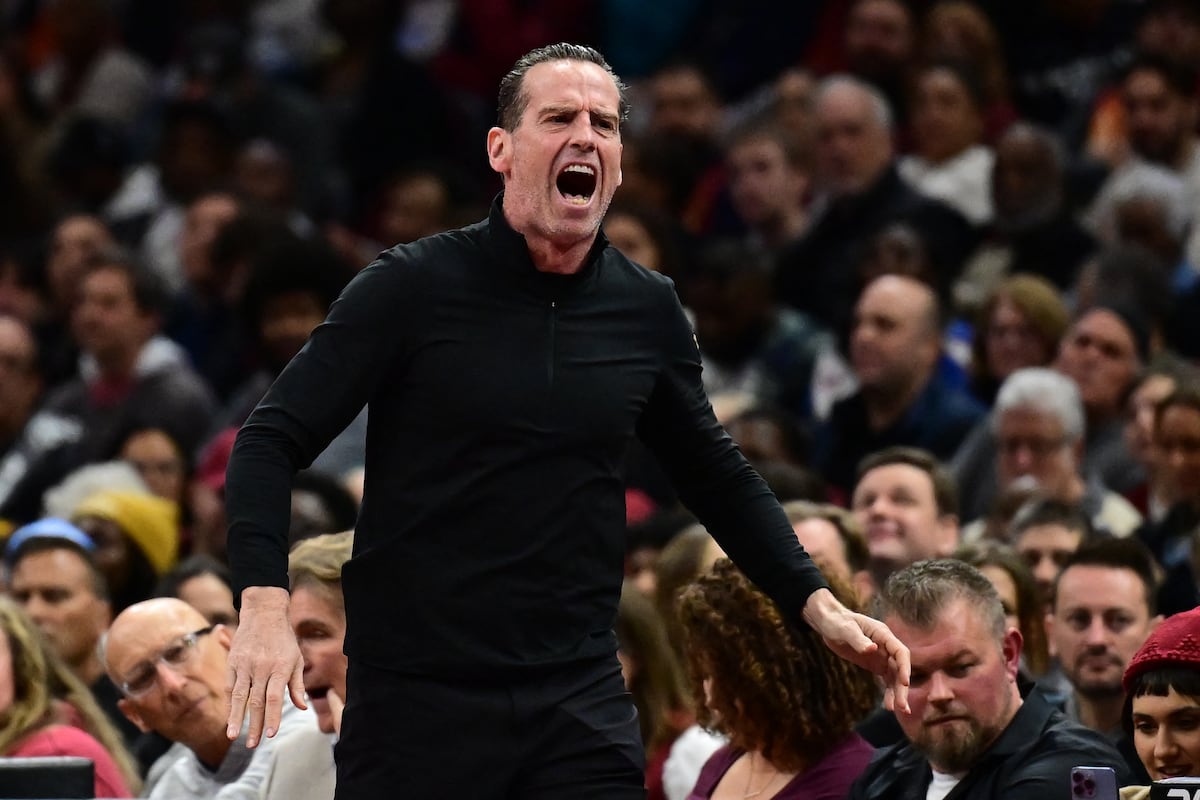The decision of the Joe Biden Government to allow Ukraine to use long-range US missiles to attack targets in Russian territory and Moscow’s furious response, warning that this will open a new phase in the war, has reopened the debate in a Europe where The positions remain opposed on this issue. In his last Foreign Affairs Council, the head of European diplomacy, Josep Borrell, has reiterated his support for this measure that kyiv has been insistently requesting for months. But this is a decision for each country that sends weapons to Ukraine. And one of the main ones, Germany, maintains its refusal. Although more and more cracks are emerging in the nein from Berlin.
“I have said time and again that Ukrainians should be able to use the weapons we provide them not only to stop arrows, but also to attack archers. And I will continue to believe that that is the right thing to do. I hope that the Member States agree on that,” said Borrell at the meeting of ministers in Brussels, where, after 1,000 days of war in Ukraine, the war at the gates of Europe has once again focused a good part of the discussions. . Discussions that will continue this Tuesday, when the Defense Ministers of the Twenty-Seven arrive in the Belgian capital, while, a short distance away, in the European Parliament, a special plenary session on Ukraine will be held.
“We have discussed” the American decision, Borrell explained at the end of the Foreign Affairs meeting. Although, he specified, “there has been no decision made in this regard.” At the end of the day, he recalled once again, it is a decision to be made by each country that sends weapons to Ukraine, although “it is important to take note that the North American Administration, after a long time saying no and no, has finally “I said yes,” he added.
Eyes have immediately turned to Germany, until now reluctant to hand over its Taurus long-range cruise missiles to Ukraine. A government spokesperson assured this Monday that the US decision “has no effect” on the refusal of the German Chancellor, Olaf Scholz, to take a step that he fears could cause an “escalation” of the war, as Moscow has just warned. An extreme that the social democrat himself, already in full campaign ahead of the early elections in February, had reiterated last week in person and has repeated again upon his arrival in Rio de Janeiro to participate in the G-20 summit: “ “We are clear that the powerful weapons we have supplied so far, long-range artillery and rocket launchers, cannot be used to penetrate deep into Russia,” Scholz insisted.
But precisely the fact that the country is already in the middle of the race for its position is causing some cracks in this position. The German Foreign Minister, the Green Annalena Baerbock, recalled in Brussels that the position of her party, which is still part of Scholz’s government alliance, is to support the delivery of Taurus to Ukraine. “We do not have to wait for terror to attack to protect ourselves,” he declared upon his arrival in the Belgian capital, where he also called not to be intimidated by threats from Russia. Its president, Vladimir Putin, “consciously plays with our fear (…) we must show that we are stronger than that fear,” he declared a day after the leader of his party and candidate for chancellor, Robert Habeck, declared that if it were elected head of Government, would allow the sending of Taurus missiles, an extreme also defended by the favorite in the electoral race, the conservative Friedrich Merz.
Scholz’s refusal to send these missiles is not the only thing that irritates his European partners. According to various diplomatic sources, during the meeting of ministers this Monday in Brussels, the chancellor’s phone call with Putin last Friday, the first since the end of 2022, has been harshly criticized behind closed doors. Something that has also happened publicly in recent days, as in the case of the Polish Prime Minister, Donald Tusk, for whom “no one will stop Putin with phone calls.” The Polish Government was one of the first to welcome Biden’s decision this Monday to allow the use of its missiles in operations in Russian territory.
France, for its part, has recalled that it already expressed its willingness to take that step in mid-May. At that time, the president, Emmanuel Macron, already said that “it is an option that we would consider if it meant allowing us to attack targets from where the Russians are attacking Ukrainian territory,” his Foreign Minister, Jean-Noël Barrot, recalled in Brussels. “Nothing new under the sun,” he added, although the Elysée has not commented on the matter again.
During the meeting in Brussels, the European foreign ministers also discussed military aid to Russia from countries such as Iran, against which they have expanded sanctions, among others including an Iranian shipping company and three Russian maritime transport companies involved in the supply. of Iranian weapons and ammunition, including drone components, to “supply Russian troops fighting in Ukraine.” They have also discussed the possibility of sanctioning North Korea in the future for sending at least 12,000 soldiers to support Russia, as well as information about the existence of at least one factory in China that would be producing drones for Russia. Although this issue has been worrying Europeans for some time, the possibility of acting against Beijing, if its collusion ends up being demonstrated, will foreseeably be taken by Borrell’s successor, the Estonian Kaja Kallas.
Act faster
In his last appearance as head of European diplomacy (although this Tuesday he will also participate in the defense meeting), Borrell this Monday urged the Twenty-Seven to argue less and act faster, in conflicts such as those in Ukraine and the Middle East, if The EU wants to be seen as a significant geopolitical actor.
“Too many times we have not been united, too many times, the discussions took too long. “You cannot pretend to be a geopolitical power if it takes you days, weeks and months to reach an agreement to act,” he stressed in reference to the long discussions that have preceded any step taken towards Ukraine – from the delivery of weapons or, now, the debate is still open in Europe about whether to allow kyiv to use it to attack war targets in Russian territory—and, also, to the still unresolved crisis in the Middle East, with an EU very divided regarding how to pressure Israel to respect the right international humanitarian in Gaza and Lebanon, as was seen again this Monday at the meeting of ministers in Brussels.
“My final message to my colleagues is to be more united and make decisions more quickly. The world is not waiting for us,” warned Borrell, who leaves with the frustration of not having achieved a turnaround in the Middle East, given the rejection of many EU countries to his proposal to try to pressure Israel by suspending political dialogue.

